What to Do After a Motorcycle Accident if You Weren’t Wearing a Helmet
Riding a motorcycle brings a sense of freedom like few other experiences. But that freedom can turn into chaos in a matter of seconds when an accident occurs.
If you were involved in a motorcycle crash and weren’t wearing a helmet, you’re likely dealing with serious injuries, shock, and a flood of questions. Among the most pressing concerns:
Can I still file a claim for compensation if I wasn’t wearing a helmet? What should I do next?
The answer is that you still have rights, even if you weren’t wearing protective gear. However, your case will likely involve unique legal challenges. Taking the right steps after your accident is crucial to protect your health, your finances, and your legal claim.
Below, we explain how helmet laws affect motorcycle accident claims, what to do immediately after a crash, how liability and compensation might change, and why working with an experienced motorcycle accident lawyer can make all the difference.
Table of Contents
ToggleMotorcycle Accidents and Helmet Laws: Why It Matters

Motorcycle helmets save lives. Studies consistently show that wearing a helmet reduces the risk of fatal head injuries significantly. Yet not all riders wear them and helmet laws vary widely from state to state.
Some states require all motorcyclists to wear helmets. Others impose helmet laws only on certain riders, such as those under 21 or 18 years old. In some places, wearing a helmet is optional if the rider carries specific insurance or meets certain criteria.
Even in states where helmets aren’t mandatory, failing to wear one can still impact your accident claim.
Immediate Steps to Take After a Motorcycle Accident
After a crash, your first priority is your health and safety. But the moments following the accident also create a foundation for any future legal claim. Here’s what you should do:
Seek Medical Help Right Away
Motorcycle crashes often cause serious injuries even at low speeds. If you hit your head or lost consciousness, seek medical care immediately, even if you feel okay. Traumatic brain injuries may not show symptoms right away but can become life-threatening without prompt treatment.
Seeing a doctor also documents your injuries, providing essential evidence for your claim.
Call the Police and Get an Accident Report
Always report your motorcycle accident to law enforcement. Police officers will:
- Investigate the scene
- Interview witnesses
- Document road and weather conditions
- Note whether you were wearing a helmet
Request a copy of the accident report. This document plays a critical role in proving fault and supporting your injury claim.
Document the Scene
If you’re physically able, gather evidence at the scene:
- Take photos and videos of:
- Your motorcycle damage
- Skid marks or road hazards
- Traffic signs or signals
- Your visible injuries
- Record the other driver’s license plate and insurance information
- Collect contact details from witnesses
Visual evidence can help clarify how the crash occurred and counter potential disputes over fault or helmet use.
Avoid Admitting Fault
Be polite but careful with your words. Avoid statements like:
- “I should have been wearing my helmet.”
- “It was probably my fault.”
- “I’m okay.”
Insurance companies or defense attorneys may use these statements against you later. Stick to the facts and let investigators determine fault.
Notify Your Insurance Company
Report the accident to your insurance provider as soon as possible. Provide only basic facts. Avoid discussing fault or your helmet use during this initial report.
How Not Wearing a Helmet Affects Your Claim
Whether your lack of a helmet affects your injury claim depends on two key factors: your state’s helmet laws and the type of injuries you sustained.
Helmet Laws Vary by State
States generally fall into three categories regarding helmet laws:
- Universal Helmet Laws: All riders must wear helmets (e.g., California, Washington, New York).
- Partial Helmet Laws: Only certain riders, usually under a specific age, must wear helmets.
- No Mandatory Helmet Law: Some states do not legally require helmets for adult riders.
Even if the law didn’t require you to wear a helmet, insurance companies might argue you were negligent for choosing not to wear one.
Comparative Negligence and Helmet Use
Most states follow comparative negligence laws. Under these rules:
- Your compensation may be reduced if you were partly responsible for your injuries.
- The court determines the percentage of fault for each party involved.
For example:
- Suppose your medical damages total $100,000.
- A jury decides you were 30% at fault for not wearing a helmet.
- Your compensation may be reduced by $30,000, leaving you with $70,000.
Whether not wearing a helmet counts as negligence depends largely on your specific injuries and the state’s legal standards.
Does Helmet Use Matter for All Injuries?
Helmet use primarily affects head, face, and neck injuries. If your injuries were unrelated to helmet protection, such as broken legs, spinal injuries, or internal organ damage, the absence of a helmet might not significantly reduce your compensation.
However, if you suffered a traumatic brain injury or facial fractures, expect the insurance company to argue that your decision not to wear a helmet contributed to the severity of those injuries.
Common Arguments Insurers Make if You Weren’t Wearing a Helmet
Insurance companies often use lack of helmet use to lower payouts. Common arguments include:
- “Your head injuries wouldn’t have occurred if you’d worn a helmet.”
- “Your medical costs are higher because you weren’t protected.”
- “You were negligent for choosing not to wear protective gear.”
These arguments aim to reduce the amount they must pay. A lawyer can help fight back with medical evidence and legal strategies.
Proving Your Right to Compensation After a Motorcycle Accident
Even without a helmet, you still have the right to pursue compensation if another driver’s negligence caused your accident. To succeed, you’ll need to prove:
- The Other Driver Was Negligent: They acted carelessly, such as speeding, running a red light, or failing to yield.
- The Negligence Caused the Accident: Their actions directly led to the collision.
- The Accident Caused Your Injuries: Your medical bills, lost wages, and pain and suffering stem from the crash.
Helmet use becomes part of the analysis only if it relates to the cause or extent of your injuries.
Types of Compensation You May Recover
Even if you weren’t wearing a helmet, you may still be entitled to damages, including:
Medical Expenses
Coverage may include:
- Emergency room treatment
- Hospital stays
- Surgeries
- Physical therapy
- Prescription medication
- Future medical care
Lost Wages and Reduced Earning Capacity
If you’re unable to work due to your injuries, you may recover:
- Lost income during recovery
- Lost promotions or benefits
- Reduced ability to earn income in the future
Pain and Suffering
Motorcycle accidents often result in significant physical pain and emotional trauma. Compensation can cover:
- Physical discomfort
- Anxiety, depression, or PTSD
- Loss of enjoyment of life
Property Damage
You may claim the cost of repairing or replacing your motorcycle and any gear or personal items damaged in the crash.
How a Motorcycle Accident Lawyer Helps
When you weren’t wearing a helmet, insurance companies often fight harder to reduce your payout. An experienced motorcycle accident lawyer can protect your rights by:
Gathering Evidence
Your lawyer investigates your crash to collect crucial evidence, such as:
- Police reports
- Witness statements
- Surveillance footage
- Accident reconstruction analysis
- Medical records connecting your injuries to the crash, not helmet use
Challenging Comparative Negligence
A lawyer can argue that:
- Your injuries would have occurred even with a helmet.
- The other driver’s actions were the primary cause of your harm.
- You were not violating any state helmet law if none applied.
Your lawyer works to reduce any fault percentage assigned to you.
Calculating Full Damages
An attorney accurately calculates the full scope of your losses, including future costs, ensuring you pursue all compensation you deserve.
Negotiating with Insurers
Insurance adjusters often pressure unrepresented victims to settle quickly. A lawyer negotiates firmly on your behalf and won’t settle for less than you deserve.
Preparing for Trial if Necessary
If negotiations fail, your lawyer can:
- File a lawsuit before legal deadlines expire
- Present your case to a jury
- Fight for maximum compensation
Statute of Limitations for Motorcycle Accidents
States impose time limits called statutes of limitations for filing motorcycle accident lawsuits. For example:
- In Florida, you generally have two years to file a personal injury claim.
- In Washington, you usually have three years.
Missing these deadlines could mean losing your right to compensation entirely. An attorney ensures all filings happen on time.
Don’t Give Up Your Rights After a Motorcycle Crash
Being involved in a motorcycle accident without a helmet doesn’t automatically bar you from seeking justice. While your case might be more complex, you still have rights and the possibility of significant compensation.
Prompt action can protect both your health and your financial future.
If you’ve been hurt in a motorcycle accident, contact Boohoff Law, P.A. We’ll listen to your story, explain your rights, and fight tirelessly to protect your interests.
Call us today at (813) 445-8161 for a free consultation.
Free Consultation
We Are Here For You 24/7
Reviews
– Elissa M.
“Really pleased with Boohoff Law! Received immediate responses when I had any questions. Treated amazingly by all staff … made this process a true breeze!”
– Caitlyn M.
– Brandy K.
Related Posts
I Was Partially At-Fault in a Rear-End Crash. Can I Still Get Compensation in Florida?
I Was a Passenger in an Uber Accident. What Are My Rights?
What Damages Can I Recover After a Jackknife Truck Accident?
Recovery is personal.
We’re here for you.
We’re close by. And if you can’t make it to us, we’ll meet you where you need us, at home or in the hospital.
You're better off with Boohoff.
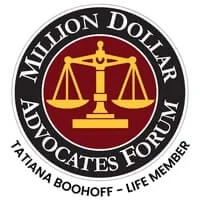

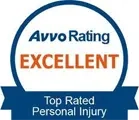
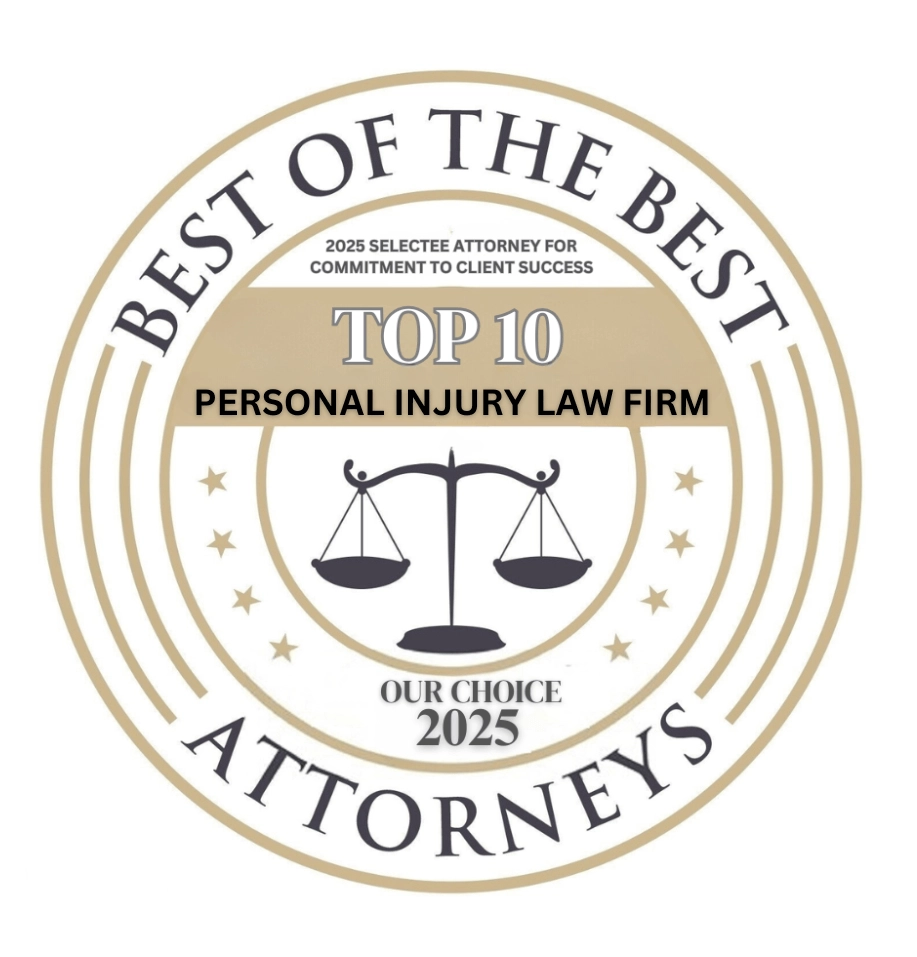

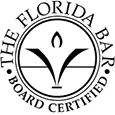
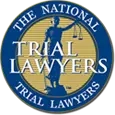




The information on this website is for general information purposes only. Nothing on this site should be taken as legal advice for any individual case or situation. This information is not intended to create, and receipt or viewing does not constitute, an attorney-client relationship.
available 24/7
(877) 999-9999
